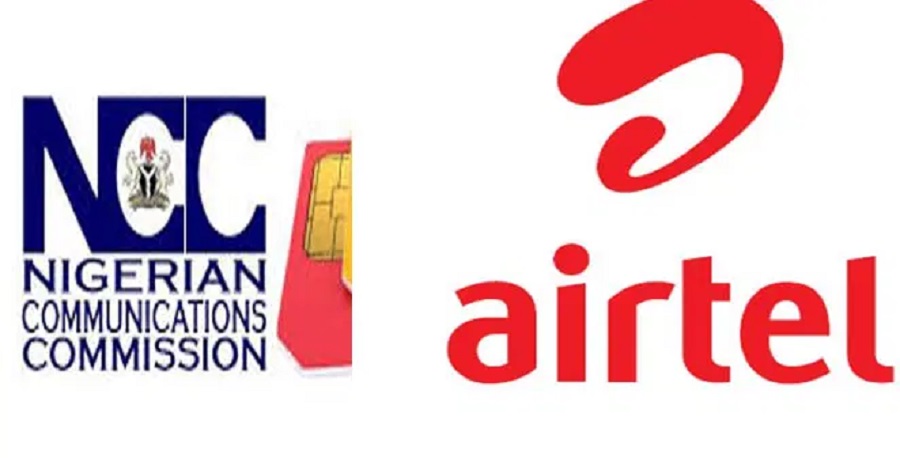Telecom
Sophos Uncovers Top 7 Ways Cyberscammers, Malware Operators Abuse Google Forms

Sophos, a global leader in next-generation cybersecurity, has published research, “Phishing and Malware Actors Abuse Google Forms for Credentials, Data Exfiltration,” describing how cyberattackers – from entry-level scammers to advanced adversaries – abuse Google Forms to implement a wide range of attacks, targeting both organizations and individuals.

Sean Gallagher, senior threat researcher at Sophos, “The extent to which cyberattackers abuse Google Forms came to light while we were researching how malware abuses encryption to conceal its activities and communications.
“Google Forms offer cyberattackers an attractive proposition: the forms are easy to implement and trusted by both organizations and consumers; the traffic to and from the service is secured with Transport Layer Security (TLS) encryption so it can’t be easily inspected by defenders; and the whole set up essentially provides a free attack infrastructure.
“Our analysis shows that while most abuse of Google Forms by cyberattackers remains firmly in the low-skill phishing and fraud spam space, there are increasing signs that adversaries are taking advantage of the platform for more sophisticated attacks.
“Sophos’ examples of this include attackers using Google Forms to exfiltrate data and for malware command-and-control.”
Below are the seven ways that Sophos researchers have identified cyberscammers and malware operators abusing Google Forms:
Phishing: Despite the fact that Google warns users on every page of a form not to enter password details, Sophos found several examples where attackers tried to convince potential victims to enter their credentials into a Google Form laid out to resemble a login page. These forms were often tied to malicious spam campaigns.
Malicious spam campaigns: One of the largest sources of Google Forms links in spam were “unsubscribe” links in scam-related marketing emails. Sophos has intercepted a number of spam-based phising campaigns that targeted Microsoft online accounts, including Office365. The spam claimed that recipients’ email accounts were about to be shut down if they were not immediately verified, and offered a link to a Google Form that asked the user to enter their Microsoft credentials. These Google Forms pages were decorated with Microsoft graphics but, still, clearly a Google Form.
Payment card data theft: Entry-level scammers use Google Forms’ ready-made design templates to attempt to steal payment data through faked “secure” e-commerce pages.
Potentially Unwanted Applications (PUAs), such as adware: The researchers discovered a number of PUAs targeting Windows users. These apps use Google Forms pages surreptitiously, with the web requests collected and submitted to forms automatically without any need for user interaction.
Fake user interfaces for malicious Android apps: Sophos found some malicious Android applications that made use of Google Forms to capture data without having to code a back-end website. Most of these were adware or PUAs. For instance, the researchers found “SnapTube,” a video app that generates revenue for the developer through web advertising fraud and which includes a Google Forms page for user feedback.
Data removal: The researchers uncovered a number of more sophisticated threats abusing Google Forms. This included malicious Windows applications that used web requests to Google Forms pages to ‘push’ stolen data from computers to a Google spreadheet via Google Forms.
Part of the wider malicious cyberattack infrastructure: Sophos telemetry has detected a number of PowerShell scripts interacting with Google Forms. We were able to prototype how PowerShell scripts could be used to scrape Windows profiling data from a computer and submit it to a Google Forms form automatically.
“Google frequently shuts down accounts associated with a mass abuse of applications, including Google Forms,” said Gallagher. “However, the kind of low-volume, targeted use of Forms by some malware could stay under the radar. Business defenders need to be alert to this threat and apply caution whenever they see links to Google Forms, or any other legitimate services trying to obtain credentials, and they should not inherently trust TLS traffic to ‘known good’ domains such as docs.google.com.”
Sophos products, including Intercept X for endpoints, defend against most malicious spam that carry forms-based phishing campaigns and detect the behaviors of system information collection discussed in the new research.
Sophos also advises consumers to install a security solution, such as Sophos Home, on the devices that they and their families use for online communications and gaming to protect everyone from malware and cyberthreats.
Telecom
Airtel Recommits to Fraud Prevention after NCC’s N104m Fine for SIM Registration Breaches

Airtel Nigeria has restated its commitment to transparency, customer safety, and regulatory collaboration following recent regulatory enforcement by the Nigerian Communications Commission (NCC).

The NCC had served Airtel Nigeria a notice of sanction over some alleged SIM infractions in Kano State and consequently slammed a fine of N104 million on the telecommunications firm.
NCC had in a letter, addressed to Airtel Nigeria Chief Executive Officer, dated May 26, 2025, signed by Chizua Whyte, head, Legal and Regulatory Services, and Mohammed Dari, acting head, Compliance Monitoring and Enforcement, on behalf of Dr Aminu Maida, executive vice chairman, NCC, titled: ‘Notice of Sanction: Non-Compliance with SIM Registration Directive in Kano,’ where the infractions were spelt out.
According to NCC, Airtel infractions include unauthorised SIM registrations using 198 unapproved devices, resulting in 8,275 registrations outside the 281 verified Airtel shops; premature activation of 63 MSISDNs prior to proper SIM registration, contrary to the provisions of the Registration of Communications Subscribers Regulations 2022; failure to conduct effective eyeballing, leading to 407 fraudulent SIM registrations with multiple NINs, contrary to the provision of the Registration of Communications Subscribers Regulations 2022 and failure to provide satisfactory explanation for SIM registrations conducted between 12.00 a.m and 6.00 a.m.
On the matter, the letter revealed that there were some letter exchanges and subsequent meetings on the infractions between the telecom regulator and Airtel, starting from January 12, 2025, March 19, 2025, March 24, 2025, and March 27, 2025, respectively.
Apparently, after investigations and responses from Airtel, the NCC was not satisfied and this led to the fine of N104 million, which was to be paid within seven days from the date the letter was issued.
Specifically, NCC fined Airtel N5 million, N12 million, N81.4 million and N5 million for the infractions respectively.
Reacting, Airtel, expressed appreciation to the NCC for uncovering the infractions, describing the development as a critical opportunity to strengthen internal processes and further align with national security and regulatory expectations
“We thank the NCC for its vigilance and continued support in protecting the integrity of the telecoms ecosystem. Airtel takes these findings seriously and is already implementing corrective measures,” a spokesperson for the company said.
Only recently, Airtel Nigeria’s CEO recently announced that the company is doubling its investment in the country, focusing on network expansion, fiber-to-the-street rollout, 4G/5G deployment, customer care upgrades, and digital infrastructure security.
These investments reinforce Airtel’s long-term vision of building a resilient and forward-looking telecom network that meets the evolving needs of Nigerians.
“Our systems are constantly evolving to stay ahead of scammers and malicious actors,” the spokesperson added. “This is not just about compliance; it’s about our responsibility to the millions of Nigerians who rely on Airtel daily.”
Airtel Nigeria says it will continue to work closely with the NCC and other arms of government to ensure high standards of service and safety for all telecom users nationwide.
Telecom
Kenya Beats Nigeria As the Most Progressive ICT Regulation in Africa

Kenya is celebrating its regulatory ecosystem being ranked as the most progressive in Africa. The International Telecommunications Union (ITU) has ranked the East African country first in its most recent ICT Regulatory Tracker.

ITU’s ICT Regulatory Tracker is an evidence-gathering tool for decision-makers and regulators. It demonstrates the effectiveness of regulatory systems in the age of technology.
The ITU evaluates the design of the national regulatory authority, the scope of the regulatory mandate, the obtaining regulatory environment, and the robustness of the competition framework in member countries.
Kenya received 93 points, up from 92 in 2023, and now leads the continent in best practices for ICT regulations.
Nigeria and South Africa finished second and third, with 92 and 88 points respectively. Malawi, Egypt, Rwanda, Morocco, Uganda, Burkina Faso, and Senegal complete the top 10 list.
Globally, Kenya was ranked 20th out of 194 countries covered.Italy led the rankings, with 100 points.
The regulator, Communications Authority (CA) of Kenya, said the achievement underscored Kenya’s commitment to creating a robust, technology-neutral regulatory environment that supports innovation, affordability and access.
Steve Isaboke, permanent secretary for broadcasting and telecommunications, visited CA Centre in Nairobi following the announcement on Thursday.
“The ranking is a clear testament of the excellent work that CA has done in spearheading Kenya’s digital transformation and driving digital access for all,” he said.
“After 25 years, CA’s regulatory regime has attained maturity, and gained global recognition. This ranking shows that the CA staff and leadership are executing their work diligently.”
Telecom
MTN’s Female Leadership Surges to 41.4%, Doubles Industry Average

MTN Nigeria Communications PLC has announced a significant increase in female representation within its leadership, with women now making up 41.4% of its workforce, a notable rise from 38.7% in 2023.

This figure reportedly doubles the industry average, positioning MTN Nigeria as a frontrunner in gender diversity within Nigeria’s ICT sector.
The company’s recently released 2024 Annual Report highlights its sustained commitment to workplace inclusion and gender equality, aligning with its “Ambition 2025” strategy. Female representation within the executive management team has reached approximately 46.7%.
MTN Nigeria attributes this progress to dedicated initiatives aimed at empowering women professionally. These include the “Women in Tech” programme, which provides targeted upskilling in high-demand fields such as Cloud Computing, Software Engineering, AI/ML, Data Science, and Cyber Security.
The “MTN Y’ello Mums Internship Programme” also supports young mothers in their transition back into the corporate world after career breaks.
Odunayo Sanya, executive director of the MTN Foundation, was recognised as the CSI Personality of the Year at the Nigeria Tech Innovation & Telecoms Awards (NTITA), further underscoring the company’s impactful social initiatives.
Additionally, Uto Ukpanah, the company secretary, received the inaugural Global Corporate Secretary of the Year Award from the Corporate Secretaries International Association (CSIA).
Speaking at a recent conference, Odunayo Sanya, emphasised the importance of balancing profitability and sustainability equation, saying, “Businesses today need to be purpose-driven. While the soul of business is profitability, it is not profitability alone that should matter to stakeholders.”
Uto Ukpanah, added, “Showcasing our corporate values and ethos to the world opens the door for greater collaboration with other organisations, as we believe there’s a lot to learn when we all come together. Governance continues to evolve. The challenges today are not the same as they were 10 years ago. Greater accountability is expected, and companies can only continue to do better.”
The company’s broader efforts in diversity and inclusion have been acknowledged with multiple accolades, including the Corporate Responsibility Award. MTN Nigeria also received the “Employer of the Year” award at the 4th Edition of the Nigeria Employers’ Consultative Association (NECA) Employers’ Excellence Awards.
Karl Toriola, CEO of MTN Nigeria, in the report, reiterated the company’s commitment to building a purpose-driven organisation, emphasising that its success is intrinsically linked to its people and their dedication to a shared vision.
“Since we initiated our culture transformation journey in 2021, our culture transformation has significantly enhanced employee engagement and organisational cohesion. It’s directly strengthened our ability to deliver outstanding business performance and drive sustainable long-term value for all our stakeholders.”

 Telecom2 days ago
Telecom2 days agoAirtel Recommits to Fraud Prevention after NCC’s N104m Fine for SIM Registration Breaches

 E-Financial3 days ago
E-Financial3 days agoPalmPay Seeks $100m Funding Round

 Telecom2 days ago
Telecom2 days agoMTN’s Female Leadership Surges to 41.4%, Doubles Industry Average

 Telecom3 days ago
Telecom3 days agoAnambra Cracks Down on Illegal ISPs, Cites Security, Service Concerns

 News3 days ago
News3 days agoFBI Busts Alleged Cyber Fraud Ring Led by Nigerian ‘Tech Queen’

 Broadcasting2 days ago
Broadcasting2 days agoNCC Warns DJs: Playing Music Without License Could Lead to 5-Year Jail Term

 News3 days ago
News3 days agoNOTAP Boss Laments Loss of IPR by Nigerian Researchers

 E-Business3 days ago
E-Business3 days agoNIMC Denies Blocking Police Commission from Verification Server



























